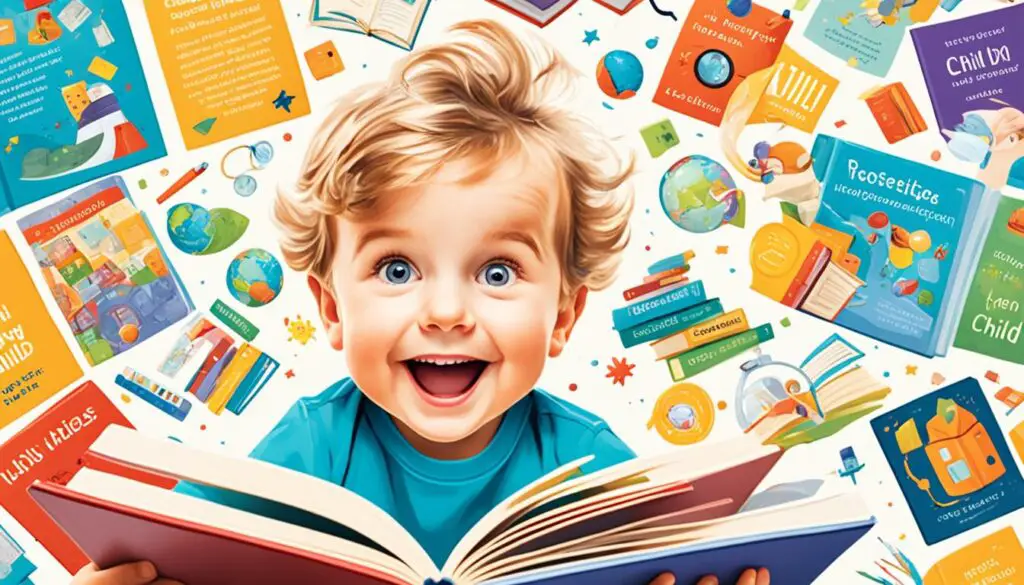
Promoting Early Childhood Literacy: Strategies for Success
As an advocate for early childhood literacy, I believe that nurturing a child’s love for reading and language learning is crucial for their overall development and future academic success. Research consistently shows that children who are exposed to books and reading from an early age have better language skills, cognitive abilities, and social-emotional development.
To promote early childhood literacy, it is essential for educators, parents, and caregivers to implement effective strategies that create a literacy-rich environment and foster a love of reading. By engaging in interactive read-alouds, incorporating hands-on literacy activities, and partnering with parents and caregivers, we can reinforce literacy skills and set children on a path to become lifelong readers and learners.
In addition, technology and digital resources can enhance early literacy experiences, providing children with opportunities to practice their reading skills in a fun and interactive way.
Join me as I explore the importance of early childhood literacy and share strategies for success in promoting this critical skill.
Key Takeaways:
- Early childhood literacy is vital for a child’s overall development and future academic success.
- Children who are exposed to books and reading from an early age have better language skills, cognitive abilities, and social-emotional development.
- Strategies for promoting early childhood literacy include creating a literacy-rich environment, engaging in interactive read-alouds, incorporating hands-on literacy activities, and partnering with parents and caregivers.
- Technology and digital resources can enhance early literacy experiences and provide additional opportunities for children to practice their reading skills.
- By implementing these strategies, we can set children on a path to become lifelong readers and learners.
The Importance of Early Childhood Literacy
Early childhood literacy is a fundamental building block in a child’s journey towards academic success and lifelong learning. Extensive research consistently highlights the significant benefits that early literacy brings to a child’s overall development and educational outcomes.
Strong early literacy skills encompass various essential abilities, including phonemic awareness, vocabulary development, letter recognition, and comprehension. When children develop these skills, they gain the tools to understand written language, effectively communicate their thoughts and ideas, and actively engage with a wide range of literacy materials.
Moreover, early literacy experiences have a profound impact not only on language and cognitive development but also on the social-emotional growth of children. Through early childhood literacy, children gain the confidence to express themselves, develop critical thinking abilities, and foster a love for reading and learning.
“Early childhood literacy provides a solid foundation for children to thrive academically, enhancing their overall educational journey and opening doors to future opportunities.” – Jane Johnson, Literacy Specialist
By prioritizing and promoting early childhood literacy, we empower children with the necessary skills and knowledge to excel in school and beyond. Investing in early literacy not only enhances children’s academic abilities but also equips them with essential life skills necessary for success in the 21st century.
| Benefits of Early Childhood Literacy |
|---|
| 1. Enhanced language and communication skills |
| 2. Improved cognitive abilities and critical thinking |
| 3. Increased vocabulary and reading comprehension |
| 4. Enhanced social-emotional development |
| 5. Greater academic success and educational outcomes |
By providing children with early literacy opportunities, we set them on a path towards lifelong learning, enabling them to become curious, informed, and engaged individuals who are prepared to thrive in an increasingly complex world.

Strategies for Promoting Early Childhood Literacy
There are several effective literacy strategies that educators, parents, and caregivers can employ to promote early childhood literacy. One key strategy is creating a literacy-rich environment that exposes children to a wide variety of books and print materials. By surrounding children with literacy at home and in early childhood settings, they are more likely to explore and engage with reading and writing on their own.
Interactive read-alouds also play a crucial role in promoting early literacy. By actively engaging children in the story through questions, predictions, and discussions, adults can foster not only listening and comprehension skills but also a love for reading and storytelling. This strategy helps children develop a deep connection with books and creates a positive association with reading.
Incorporating hands-on literacy activities can make learning to read more engaging and enjoyable for young children. Activities like letter and word games, writing centers, and sensory experiences with letters and sounds provide interactive opportunities for children to practice their literacy skills. By making learning interactive and fun, children are more motivated to participate and develop necessary literacy skills.
Partnering with parents and caregivers is another crucial strategy for promoting early childhood literacy. By providing resources, tips, and strategies to support children’s literacy development at home, educators can empower families to become active participants in their child’s literacy journey. Involving parents and caregivers in the process ensures that the promotion of early literacy extends beyond the classroom and into the child’s everyday life.
Leveraging technology and digital resources can also enhance early literacy experiences. Interactive stories, educational apps, and online libraries provide additional opportunities for children to practice their reading and language skills while incorporating elements of play and fun. Integrating technology into early literacy activities can capture children’s attention and deepen their engagement with literacy materials.
By implementing these effective strategies for promoting early childhood literacy, educators, parents, and caregivers can create a comprehensive and engaging approach to support children in developing strong literacy skills from the earliest stages of their lives.
FAQ
Why is early childhood literacy important?
Early childhood literacy is important because it lays the foundation for a child’s future academic success and overall development. Research shows that children who are exposed to books and reading from an early age have better language skills, cognitive abilities, and social-emotional development.
What are the benefits of early childhood literacy?
Early childhood literacy offers numerous benefits, including improved language skills, cognitive development, and social-emotional growth. Children with strong early literacy skills are more likely to perform well in school and have better educational outcomes.
How can I effectively promote early childhood literacy?
There are several strategies you can use to promote early childhood literacy effectively. These include creating a literacy-rich environment, engaging in interactive read-alouds, incorporating hands-on literacy activities, and partnering with parents and caregivers to reinforce literacy skills. Additionally, leveraging technology and digital resources can enhance early literacy experiences.